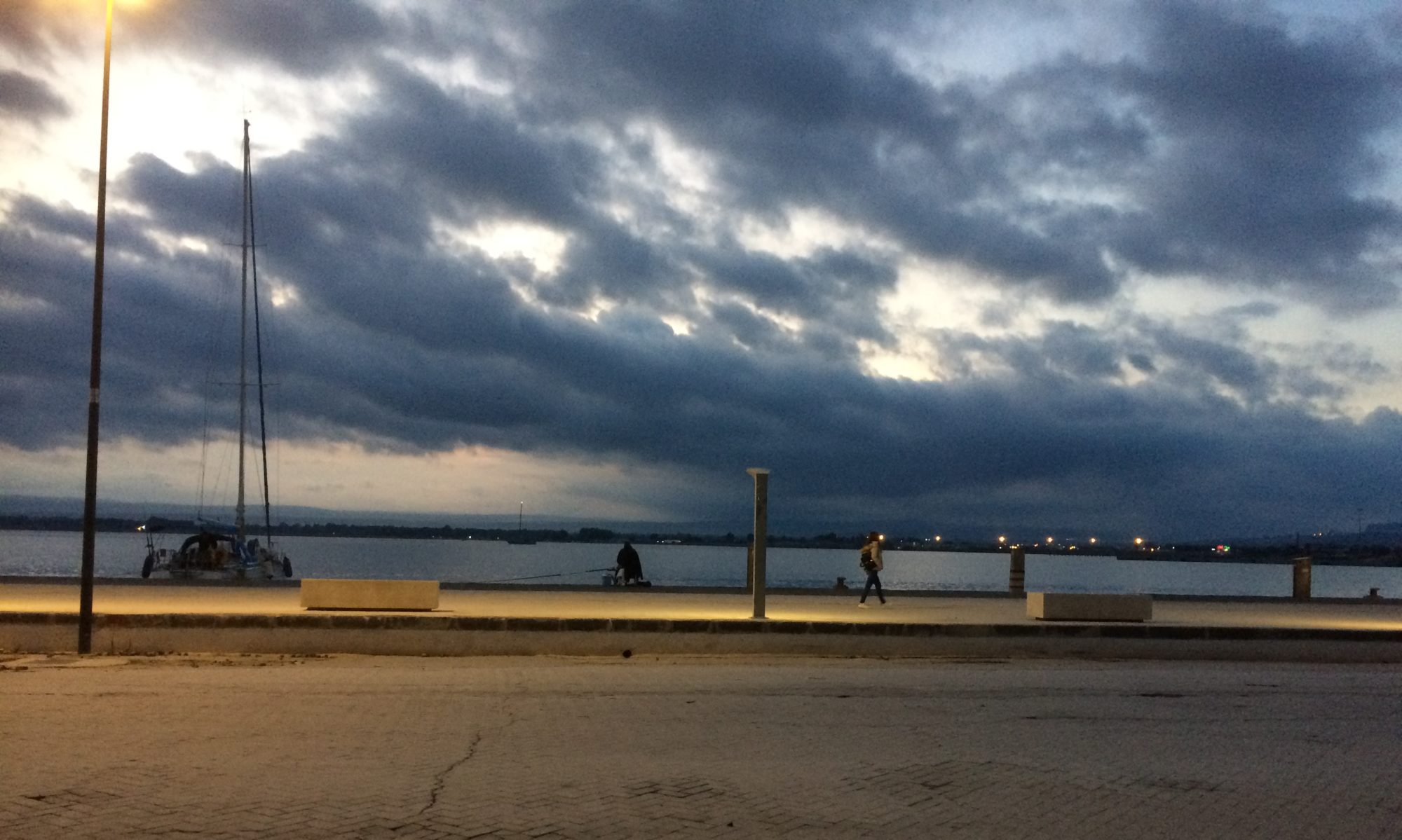Here are the plays that Jonathan Chadwick has written in the period from 2014 to the present.
His first play THE PERFORMANCE was written when he was 20 and was about the public immolation and death by fire of Jan Palach in protest against the Warsaw Pact countries invasion of Czechoslovakia after the Prague Spring in 1969. The play appeared at the Edinburgh Festival and a prizewinning film was made of the rehearsals. In 2012 it was revived at the Public Theatre in Zlin in the Czech Republic.
He wrote two plays with John Hoyland for Foco Novo. These plays THE NINE DAYS AND SALTLEY GATES and TIGHTEN YOUR BELT had national tours to the main coal- mining areas of Britain in 1976 and 1977. The former was given a public reading in 2017 at the Arcola Theatre, London.
In 2006 he was asked to write a play for the Rhodope Drama Theatre in Smolyan in the Rhodope Mountains in Bulgaria, said to be the birthplace of Orpheus. ORPHEUS COMES BACK FROM HELL is the result of this.
Texts of all the above plays are available on request. Please email.chadwickjonathan@me.com
The plays 2013-2020:
CHECK OUT
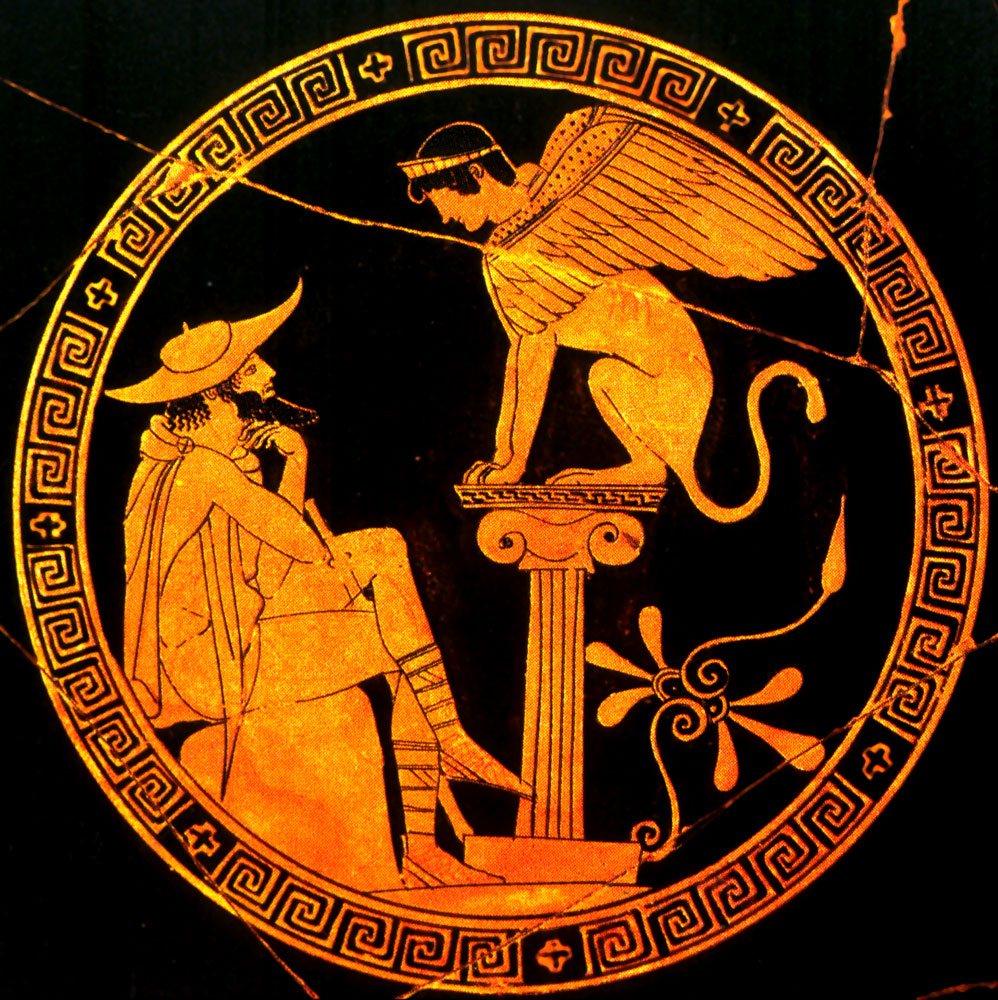
A play by Jonathan Chadwick
A popular uprising brings turmoil to the city streets. A radical writer encounters his former protégée, muse and lover, while he is waiting for a train to take him off to join the resistance. She is devastated by her inability to find a creative solution to the conundrum presented by her work as an actress on the part of Jocasta in the Oedipus. She is expecting her one-time mentor, the man who ‘discovered’ her to help her find the answer. This quest is connected to the figure of the unborn child they aborted at the end of their love affair.
The play investigates the implications of the Oedipus story seen from the perspective of Jocasta and consists of a series of enactments and flights of imagination.
A dramatic reading of this work-in-progress was given Elsa Mollien and Tom Clark at an event organised by the Association of Jungian Analysts in Swiss Cottage, London in April 2017.
RESURRECTION
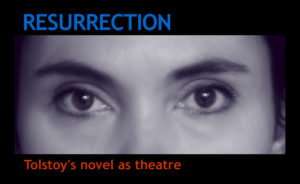
Leo Tolstoy’s novel adapted for the stage by Jonathan Chadwick
Az Theatre presented a reading of Jonathan Chadwick’s stage adaptation of Tolstoy’s last novel as a benefit for our ‘War and Peace: Gaza – London’ project at Rich Mix on Sunday 18thJanuary 2015 at 3pm
Cataclysmic personal and moral change occurs when a young wealthy landowner is on the jury for a trial in which the woman he seduced as a teenager is up for murder. Tolstoy’s last novel Resurrection, written twenty years after Anna Karenina, describes a devastating moral journey towards an uncertain resolution that takes in Siberia and the emerging revolutionary politics of 1890’s Russia.
This stage adaptation by Az Theatre’s Artistic Director, Jonathan Chadwick, brings a contemporary frame to this extraordinary encounter between the wealthy Nekhlyudov and the sex-worker, Maslova. Az Theatre pursues the investigation of Tolstoy’s moral and artistic universe, initiated in the partnership with Theatre for Everybody in Gaza with the project to produce a contemporary Arabic stage version of War and Peace in Gaza, Palestine.
This reading was presented as a benefit for the ‘War and Peace: Gaza-London’ project in Gaza. Readers included: Philip Arditti, Annabel Capper,Tom Clark, Tom Chadwick, Deborah Findlay, Zaydun Khalaf, Elsa Mollien, David Mumeni, Andrea Smith Valls, Maggie Steed and Jennie Stoller.
Note: I re-read RESURRECTION after we started working on Tolstoy’s War and Peace
with Theatre for Everybody. I thought it was a deep articulation of human change
connecting the personal with the social. In adapting it I wanted to see if I could bring
to life this energy of connected change. Tolstoy wrote it in 1899, 20 years after his last
previous fiction, Anna Karenina. He only did so to raise money to benefit the
Doukhobors, a peasant sect that practiced primitive communism. Of course this work
has as much to do with what is happening in Gaza as anywhere else. Tolstoy, in a
letter around the time he wrote Resurrection, wrote that fiction was “like a clown at a
country fair grimacing in front of the ticket-booth in order to lure the public inside the
tent where the real play is being performed.”
I am indebted to the wonderful translation of Resurrection by Rosemary Edmonds.
Jonathan Chadwick
MAGNANIMOUS DESPAIR
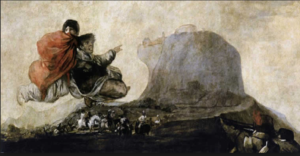
a play by Jonathan Chadwick
A reading of this play was presented by Leading Edges, seminar series of the Association of Jungian Analysts on 20th March 2018
Magnanimous Despair is a historical helter-skelter that takes three women hurtling through our island story from the aftermath of the English Revolution to the Iraq War protest movement. The continually reincarnated wayward sisters: Gladys, the singing teacher, Maureen, the inspired orphan artist and Erica, the activist magical mathematician, throw themselves at crucial moments into resistance against the long onward march of the UK regime.
“My love is of a birth as rare, As ‘tis for object strange and high” from The definition of love by Andrew Marvell
“a storm is blowing from Paradise, it has caught itself up in his wings and is so strong that the Angel can no longer close them. The storm drives him irresistibly into the future, to which his back is turned”
On the Angel of History, from IX Thesis on the Philosophy of History by Walter Benjamin
THE NAMESAKE
The play is set in Gaza and London in 2018 during The Great March of Return.
Through a information technology error a media organisation in London contacts a Palestinian-Israeli student called Sami Basheeti believing that it is her brother that has been shot and killed during the Great March of Return massacre near Gaza. This precipitates her contact with Samiya Al Bashiti in Gaza, a young woman with the same name and birth date. Through social media the two young women meet and accompany each other on a journey of discovery of their family’s history, divided in 1948, one brother and his family going to Gaza and the other brother’s family ending up in Nazareth. Samiya in Gaza, driven by grief at the death of her brother, demands to know the reasons behind his death and through her relationship with Ghassan, a paramedic starts to work as an activist and take up medical training. Meanwhile Sami, a geology student who wants to be a jeweller working in a fast food outlet in London to pay her way through college, finds herself in the midst of an industrial dispute where issues of justice and equality are dramatically raised. This play describes the coming into consciousness of two young women divided by history but united by their struggle for justice.
The play is in a first draft form and is ready for development.
THE STORY OF GO
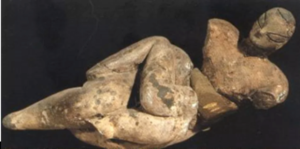
A Play by Jonathan Chadwick
This play was given its first public reading at University College London on Saturday 27October 2018
The Radical Anthropology Group collaborated in the presentation of a public reading of the first draft of this new play by Jonathan Chadwick
This dramatisation depicts a human society 12,000 years ago in deep crisis because their way of life is changing. The women have withdrawn access to sex but the men are no longer able to go on a big-game hunt to make a collective provision of food. The full moon is coming and tensions break out around the emerging movement towards hierarchical organisation amongst the men. The dilemma expresses itself in the story of an adolescent transgender person who attempts to resolve the difficulties.
“What an extraordinary tour de force! I am knocked back by the scale your ambition. No-one has attempted anything like this before. Each time I read further, a few lines at a time, those voices speak to me in a new way, but mostly several hours later, as I try to re-imagine those sad turning-points in my own anthropological terms”. Chris Knight (author of Blood Relations: Menstruation and the Origins of CultureYale 1991) in an email to Jonathan Chadwick after reading THE STORY OF GO.
SOMEBODY ELSE
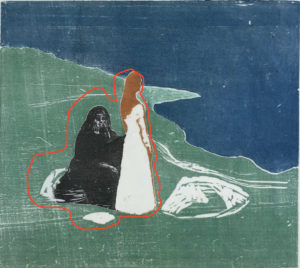
a play by Jonathan Chadwick
23 year old Alice is from a war zone. She has been badly brutalised. She and Margarette, who is 50 and has spent her working life as an actor, are living together as a part of a scheme called ONE TO ONE. The scheme ‘matches’ refugee women with women who have volunteered to help by taking mentoring residential roles. The apartment they live in is on the northern shores of the Mediterranean. Refusing, at first, to speak and move Alice eventually proves that she can help Margarette perhaps even more than Margarette can help her. The women embark on a journey of mutual self-discovery that challenges the roles that are ascribed to them. In a series of short, and sometimes shocking, confrontations they manage to reach levels of self realisation about themselves as women and agents of change.
This play was given an online reading in April 2020. See the notice for this event. See the comments made by the audience.
THE FIELD
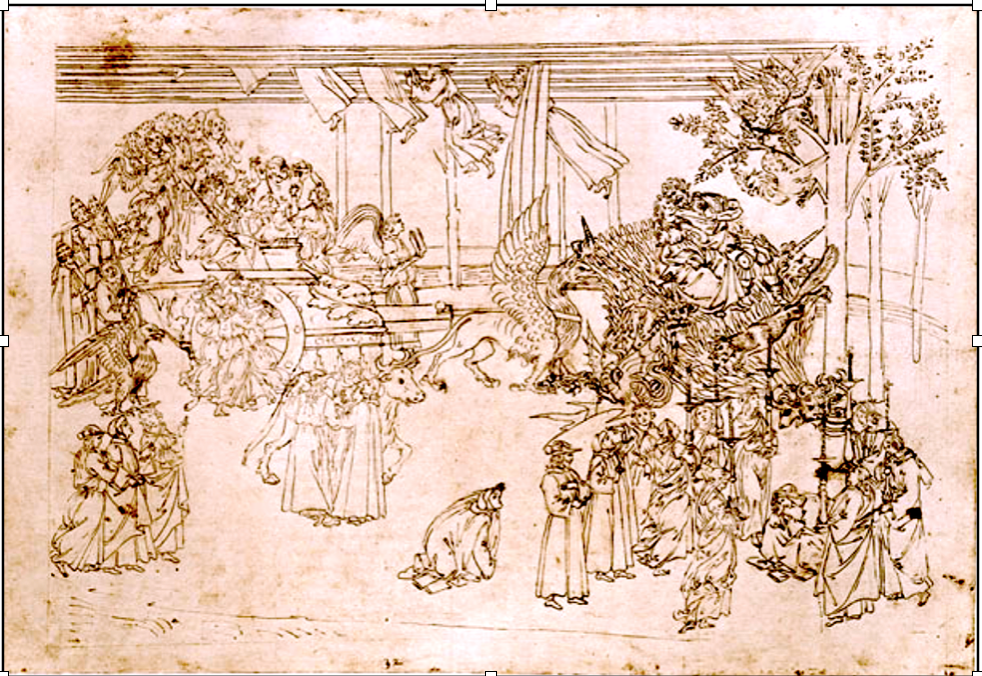
Three people, two of whom are theoretical physicists working at a hadron collider, arrive in a field and decide to buy the adjacent house and have a child. Elsewhere a young woman, distraught at the death of her sister, plants a tree and meets a singer. Rebellion, floods and financial collapse precipitate a social revolution.
This play was given an online reading in April 2020. See the notice for this event. See what the audience had to say.
THE RUINS
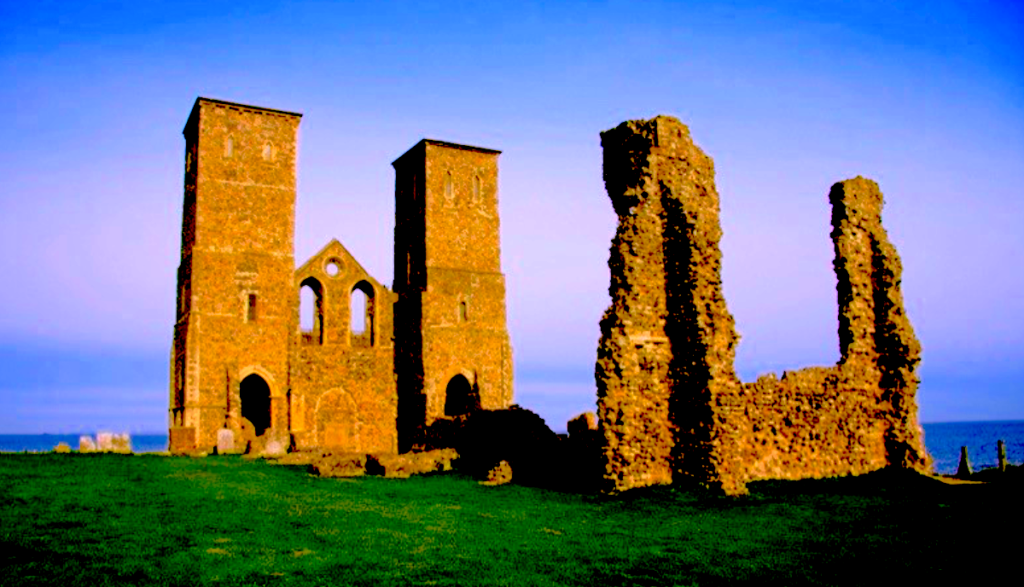
This is a play that dramatises the reverberations of the popular movement against austerity in the UK over the past twelve years. The story focuses on the story of Inga and Col, twins born in 1990 who become adults during financial crisis of 2008. As one and a half year olds they have been separated when their mother is killed in the IRA bomb attack on the Baltic Exchange, London in 1992. They meet again at an acting class in London in 2009 and their lives become interlinked as the past reveals itself and the movement of events echoes in their lives. The play concludes in the midsummer of 2022 with Col working as delivery courier and Inga as an actor when they meet the ghost of a forefather.
Comments on the first reading:
“It is a strange and sometimes haunting piece. I like very much the way in which it shifts between the existential, the mythological, the historical and the ‘actual’; although I find some of the passages which are most detached from social and political life the most powerful, some of them strikingly beautiful; and I’m not sure that the connection between contemporary events and the more elevated moments works terribly well. I loved the twins and the heritage of slavery, the Greek drama/mythology references. It would be terrific to hear or see it played out in some way to find out how the seismic shifts from one register to another actually appears. You do have a powerful gift for evocation that is wild, sometimes weird and sometimes wondrous.”
“Thank you for opening your marvellous world to us! I was pregnant in my dream last night while walking by the sea and the light was reflecting on the surface. I was thinking why I don’t have the pain that everyone speaks about. Your play had a strong effect on my psyche. Thank you for the gift of thoughts and reflections. Loved every bit of it and enjoyed being a listener very much!”
“My mind swirling in the play’s images and ideas, me with with greater openness to the potential and possibilities of what works in a theatre piece. Radical! Boundaries / old conventions pushed aside…”
“Appreciation!! A lovely artistic process.”
“So glad you got to hear your play and it becomes clearer in my mind the more I mull and grapple – am slow. Maddeningly so. But your writing is such a gift to explore – so razor sharp and elegant (weird words perhaps to describe such abrasive and incendiary matter”
